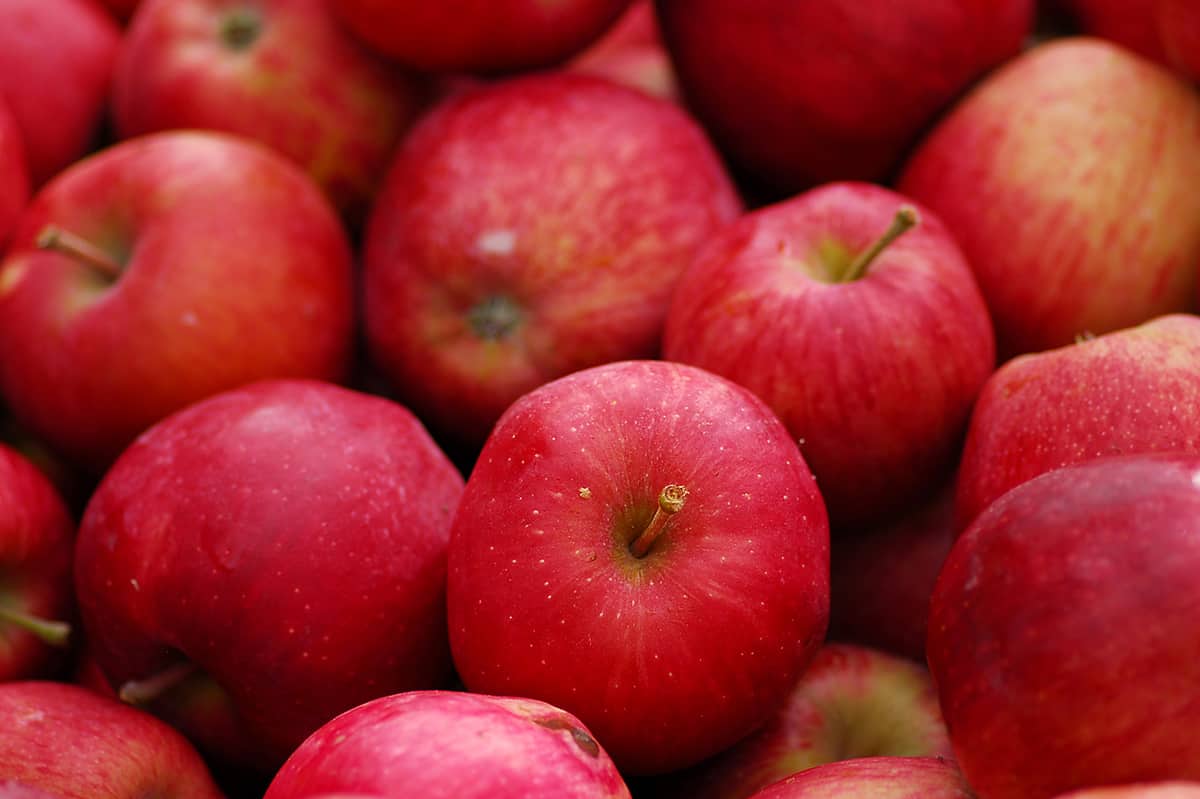
Seasonality:
- Apples can be found in-store year-round, with peak season being August to April
Health Benefits of Apples:
- Research suggests that powerful antioxidants in apples play an essential role in reducing the risks of certain diseases like cancer and Alzheimer’s.
- One medium-sized apple contains about 4g of dietary fiber and 14% of your daily recommended intake of Vitamin C.
- Apples can help lower cholesterol and blood pressure.
How to Select Apples:
- Select apples that are firm to the touch when lightly pressed. Avoid apples that are noticeably soft, discolored, or indent easily after you press the skin.
- Avoid apples with signs of bruising or decay.
- Not sure what apple to use for snacking, cooking or baking? Check out this guide!
How to Store Apples:
- Store unwashed apples in the crisper drawer of your refrigerator. Avoid placing apples near strong-smelling foods, such as onions or garlic, since apples can easily take of the odor of other foods.
How to Prepare Apples:
- Always wash apples before eating, even if you do not intend to eat the skin.
- Apples can be eaten whole, or sliced and chopped for snacking or cooking.
Fun Facts About Apples:
- The first America orchard was planted around 1625 on Beacon Hill in Boston, MA.
- Apple trees take four to five years to produce their first fruit.
- The science of apple growing is called pomology.
Helpful Links:
- 40 Healthy Apple Recipes for Fall
- 7 Ways to Eat Apples Every Day (that aren’t dessert!)
- Michigan Apple Grower Profile: The Youngquist Family
Downloadable Resources

Delicous Ways to Enjoy Michigan Apples

New York State Apple Variety Guide
Learn more at US Apple, Michigan Apples and New York Apple Association
Get additional resources in our Nutrition Education Center
































